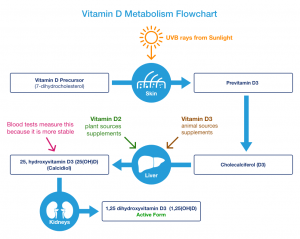Micronutrients deficiencies
Our body requires nutrition to be healthy. One of the most important body requirements is micronutrients. This includes vitamins and minerals.

Vitamins are a good source to strengthen our immune system, produce energy, and clot blood. On the other hand, minerals help in growth, maintain good bone health and balance in the fluids.
Through this article, we are going to discuss micronutrients, their function, benefits, as well as their deficiency.
Micronutrients
This simple word defines vitamins and minerals. The body requirement for these nutrients is low. Thus, it is labeled as “micro”. The body cannot produce vitamins and minerals on its own. You need to include them in your diet.
Micronutrients can be divided into four types:
Water-Soluble Vitamins
Vitamins that can be easily dissolved in water are called water-soluble vitamins. These vitamins are not stored in our bodies and get easily drained. These water-soluble vitamins are:
- Vitamin B1 (Thiamine): It helps in converting nutrients into energy. Sources are wheat, meat, and fish. Moreover, its deficiency causes research dated 19th March 2019 by The James Cook University stated that “Eating of fish may also help in preventing asthma”.
- Vitamin B2 (Riboflavin): It helps in producing energy in the body and to enhance cell functioning. Likewise, sources are eggs, milk, and organ Its deficiency causes inflammation of mouth and skin.
- Vitamin B3 (Niacin): Its main aim is to produce energy from food. Sources are leafy greens and beans. Its deficiency causes
- Vitamin B5 (Pantothenic Acid): It helps in the synthesis of fatty acid. Sources are mushrooms, tuna, and avocado. Its deficiency causes a digestive and neurological disturbance.
- Vitamin B6 (Pyridoxine): It helps in releasing sugar from the carbohydrates present in our body for energy. Sources are milk, carrot, and Fish. Its deficiency causes anemia and scaly dermatitis.
- Vitamin B7 (Biotin): It helps in the Metabolism of glucose, amino acid, and fatty acid. Hence, sources are eggs, almonds, and sweet potatoes. Its deficiency causes hair loss and neurological disturbance.
- Vitamin B9 (Folate): It helps in cell division. Additionally, the sources are liver, beef, and spinach. Also, its deficiency causes Anemia and glossitis.
- Vitamin B12 (Cobalamin): It helps in the formation of red blood cells. Also, It helps in providing proper brain function. Sources are fish and meat. Its deficiency causes pernicious anemia. Furthermore, a study by Rice University dated 13th March 2019 stated that the deficiency of vitamin B12 may cause an increased risk of infection.
- Vitamin C (Ascorbic Acid): It helps in the production of collagen and neurotransmitters. These are the main protein present in the skin. Further, sources are citrus fruit and brussels sprouts. Likewise, its deficiency causes scurvy. Research dated 8th March 2017 by the University of Salford stated that Vitamin C rich foods are effective in attacking cancer stem cells.


 Sources are milk and fish oil. Its deficiency causes night rickets. On January 30, 2019, The North American Menopause Society (NAMS) stated that
Sources are milk and fish oil. Its deficiency causes night rickets. On January 30, 2019, The North American Menopause Society (NAMS) stated that 
